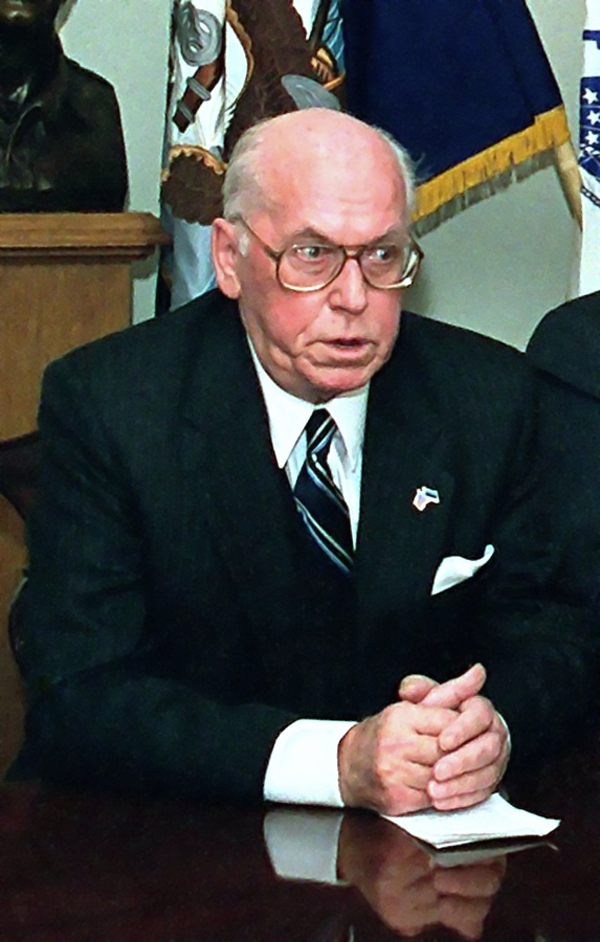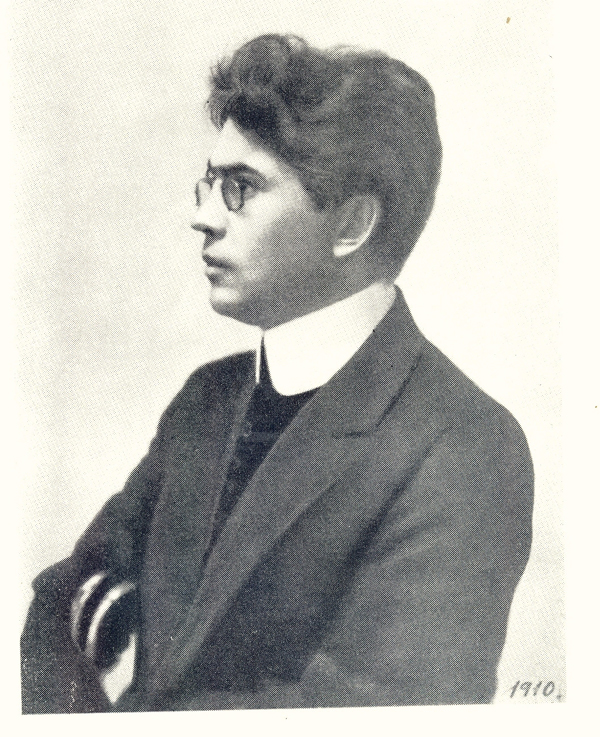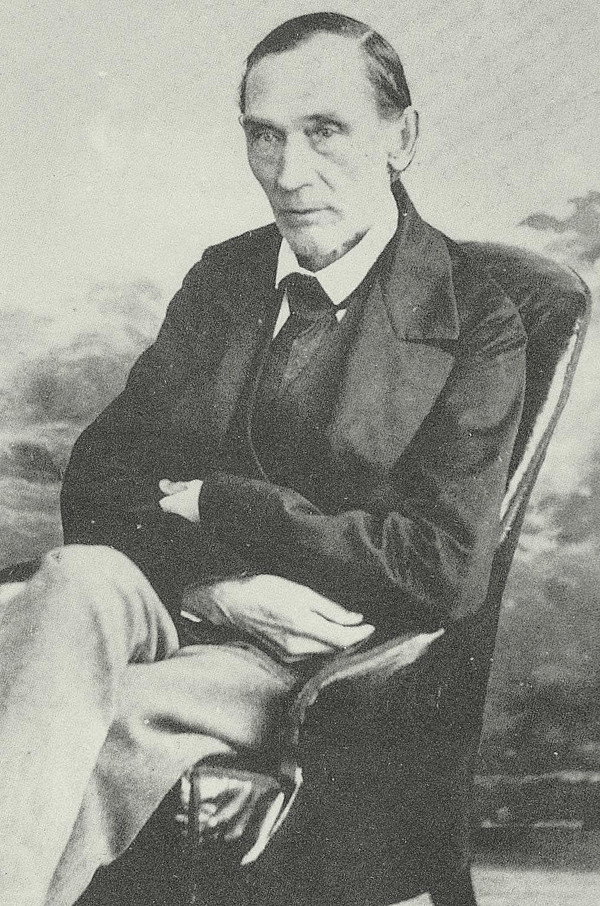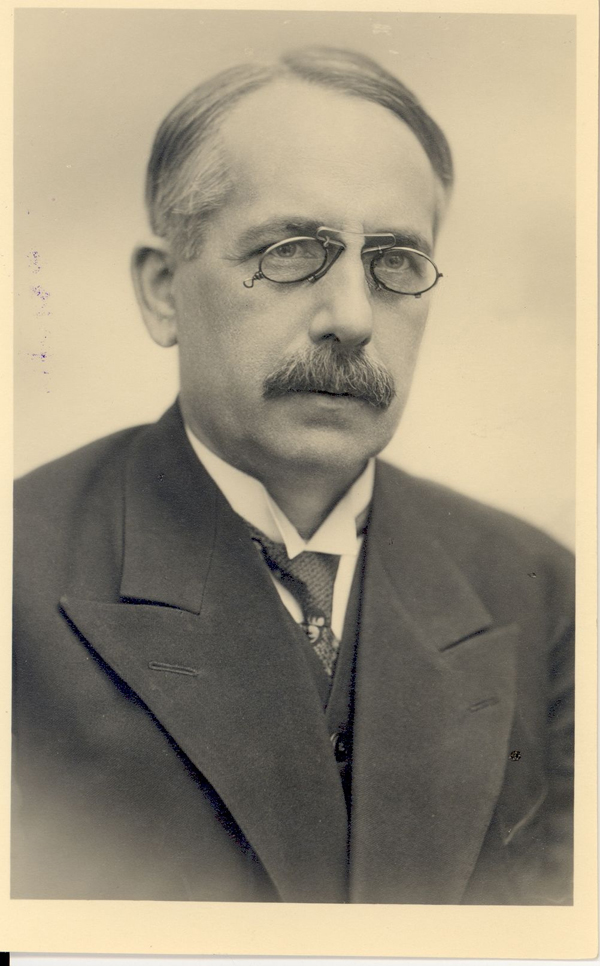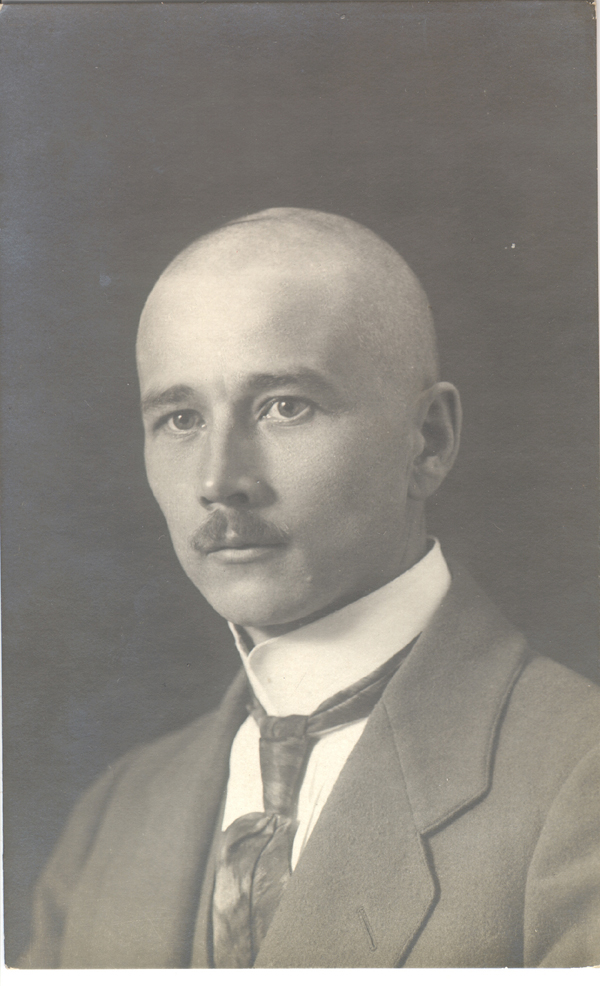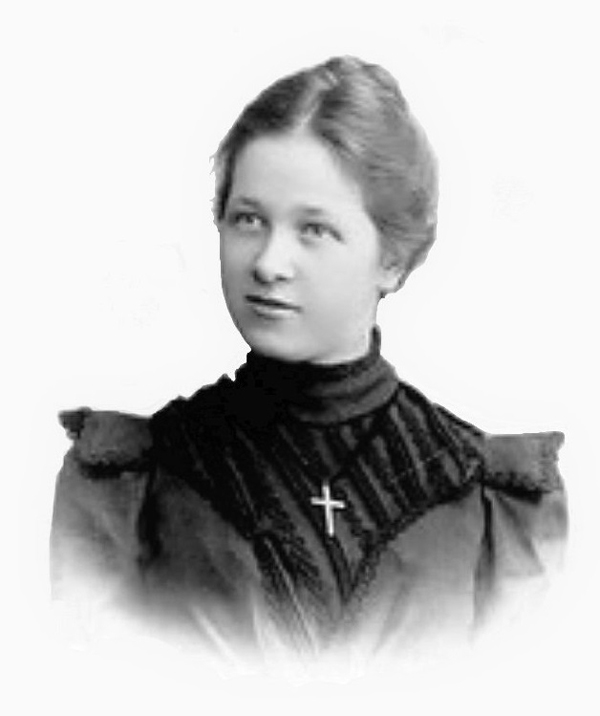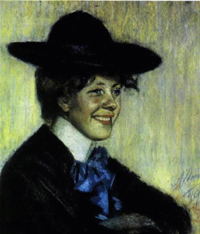Famous People in History
Movie, Film, TV, & Theater
Hugo Raudsepp
Field of Interest: Playwright
Known For: Mikumärdi (Drama, 1929), Põrunud aru õnnistus (Drama, 1931), Vedelvorst (Drama, 1932), Salongis ja kongis (Drama, 1933), Isand Maikello sisustab oma raamatukappi (Drama, 1934), Roosad prillid (Drama, 1934), Jumala veskid (stories, 1936), Lipud tormis (Drama, 1937), Mees, kelle käes on trumbid (Drama, 1938), Roheline Tarabella (Drama, 1938), Mustahamba (Drama, 1939),Kompromiss (Drama, 1940), Viimne eurooplane (novel, 1941), Kivisse raiutud (short story collection, 1942), Rotid (Drama, 1946), Tagatipu Tiisenoosen (Drama, 1946), Minu esimesed kodud. Mälestused I (Memoirs, 1947), Tillereinu peremehed (Drama, 1948), Küpsuseksam (Drama, 1949), Lasteaed (Drama, 1949), Vaheliku vapustused (drama, posthumously in 2003)Estonian writers banned or exiled during the Soviet period include the playwright Hugo Raudsepp.Hugo Raudsepp (July 10, 1883 – September 15, 1952) was an influential and prolific Estonian playwright.[1] In 1951 he was deported to the Irkutsk region by the Soviet authorities, where he died.[2]
Country: Estonia
Date of Birth: 10 July 1883
Place of Birth: Vaimastvere, Estonia
Date of Death: 15 September 1952
Please of Death: Irkutsk region
Known For: Mikumärdi (Drama, 1929), Põrunud aru õnnistus (Drama, 1931), Vedelvorst (Drama, 1932), Salongis ja kongis (Drama, 1933), Isand Maikello sisustab oma raamatukappi (Drama, 1934), Roosad prillid (Drama, 1934), Jumala veskid (stories, 1936), Lipud tormis (Drama, 1937), Mees, kelle käes on trumbid (Drama, 1938), Roheline Tarabella (Drama, 1938), Mustahamba (Drama, 1939),Kompromiss (Drama, 1940), Viimne eurooplane (novel, 1941), Kivisse raiutud (short story collection, 1942), Rotid (Drama, 1946), Tagatipu Tiisenoosen (Drama, 1946), Minu esimesed kodud. Mälestused I (Memoirs, 1947), Tillereinu peremehed (Drama, 1948), Küpsuseksam (Drama, 1949), Lasteaed (Drama, 1949), Vaheliku vapustused (drama, posthumously in 2003)Estonian writers banned or exiled during the Soviet period include the playwright Hugo Raudsepp.Hugo Raudsepp (July 10, 1883 – September 15, 1952) was an influential and prolific Estonian playwright.[1] In 1951 he was deported to the Irkutsk region by the Soviet authorities, where he died.[2]
Country: Estonia
Date of Birth: 10 July 1883
Place of Birth: Vaimastvere, Estonia
Date of Death: 15 September 1952
Please of Death: Irkutsk region
Political Leaders
Lennart Georg Meri
Field of Interest: Political leader
Known For: 2nd President of the Republic of Estonia (6 October 1992 – 8 October 2001), Minister of Foreign Affairs (April 1990 – March 1992)Lennart Meri (b.1929), writer and historian, became president of Estonia in 1992 and won a second term in 1996.Lennart Georg Meri (Estonian pronunciation: [ˈlenˑɑrt ˈgeorg ˈmeri]; 29 March 1929 – 14 March 2006) was a writer, film director and statesman who served as the second President of Estonia from 1992 to 2001. Meri was a leader of the Estonian independence movement.
Country: Estonia
Date of Birth: 29 March 1929
Place of Birth: Tallinn, Estonia
Date of Death: 14 March 2006
Please of Death: Tallinn, Estonia
Spouse: Regina Meri, Helle Meri
Known For: 2nd President of the Republic of Estonia (6 October 1992 – 8 October 2001), Minister of Foreign Affairs (April 1990 – March 1992)Lennart Meri (b.1929), writer and historian, became president of Estonia in 1992 and won a second term in 1996.Lennart Georg Meri (Estonian pronunciation: [ˈlenˑɑrt ˈgeorg ˈmeri]; 29 March 1929 – 14 March 2006) was a writer, film director and statesman who served as the second President of Estonia from 1992 to 2001. Meri was a leader of the Estonian independence movement.
Country: Estonia
Date of Birth: 29 March 1929
Place of Birth: Tallinn, Estonia
Date of Death: 14 March 2006
Please of Death: Tallinn, Estonia
Spouse: Regina Meri, Helle Meri
Writers, Painters, Photographers
Charles Arthur Adson
Field of Interest: Poet, writer, theatre critic
Known For: "Henge palango" (1917), "Vana LATERNA" (1919), "Roosikrants" (1920), "Kaduvik" (1927), "Katai, kibuvits Nink Kivi" (1928), "Pärlijõgi" (1931), "Lehekülg ajaraamatust" (1937), "Rahumäe kannel" (1973), Läheb mööda (1923), Toomapäev (1928), Neli Kuningat (1931), Lauluisa yes Kirjaneitsi (1930), Iluduskuninganna (1932)Writers who fled abroad during World War II include Karl Rumor (1886–1971) and Arthur Adson (1889–1977).Artur Adson (3 February [O.S. 22 January] 1889 in Tartu – 5 January 1977 in Stockholm) was an Estonian poet, writer and theatre critic.[
Country: Estonia
Date of Birth: 3 February [O.S. 22 January] 1889
Place of Birth: Sänna, Estonia
Date of Death: 5 January 1977
Please of Death: Stockholm, Sweden
Spouse: Marie Under
Known For: "Henge palango" (1917), "Vana LATERNA" (1919), "Roosikrants" (1920), "Kaduvik" (1927), "Katai, kibuvits Nink Kivi" (1928), "Pärlijõgi" (1931), "Lehekülg ajaraamatust" (1937), "Rahumäe kannel" (1973), Läheb mööda (1923), Toomapäev (1928), Neli Kuningat (1931), Lauluisa yes Kirjaneitsi (1930), Iluduskuninganna (1932)Writers who fled abroad during World War II include Karl Rumor (1886–1971) and Arthur Adson (1889–1977).Artur Adson (3 February [O.S. 22 January] 1889 in Tartu – 5 January 1977 in Stockholm) was an Estonian poet, writer and theatre critic.[
Country: Estonia
Date of Birth: 3 February [O.S. 22 January] 1889
Place of Birth: Sänna, Estonia
Date of Death: 5 January 1977
Please of Death: Stockholm, Sweden
Spouse: Marie Under
Friedebert Tuglas
Field of Interest: Writer, critic
Known For: Popi ja Huhuu, The Poet and the Idiot and Other StoriesHis fellow writers and poets between the revolution of 1917 and 1940 included Friedbert Tuglas (1886–1971) and Marie Under (1883–1980).Friedebert Tuglas (March 2, 1886 Ahja – April 15, 1971 Tallinn) was an Estonian writer and critic who introduced Impressionism and Symbolism to Estonian literature.[1] Persecuted under the czar, he became an acknowledged representative of Estonian literature in the Soviet era[citation needed].
Country: Estonia
Date of Birth: 2 March 1886
Place of Birth: Ahja
Date of Death: 15 April 1971
Please of Death: Tallinn
Spouse: Elo Tuglas
Known For: Popi ja Huhuu, The Poet and the Idiot and Other StoriesHis fellow writers and poets between the revolution of 1917 and 1940 included Friedbert Tuglas (1886–1971) and Marie Under (1883–1980).Friedebert Tuglas (March 2, 1886 Ahja – April 15, 1971 Tallinn) was an Estonian writer and critic who introduced Impressionism and Symbolism to Estonian literature.[1] Persecuted under the czar, he became an acknowledged representative of Estonian literature in the Soviet era[citation needed].
Country: Estonia
Date of Birth: 2 March 1886
Place of Birth: Ahja
Date of Death: 15 April 1971
Please of Death: Tallinn
Spouse: Elo Tuglas
Friedrich Reinhold Kreutzwald
Field of Interest: Writer
Known For: Plague of Wine (1840), The World and Some Things One Can Find in It (1848–49), Reynard the Fox (1850), Wise Men of Gotham (1857), Kalevipoeg (Kalev's Son), Old Estonian Fairy-Tales (1866), Lembitu (1885)Writer Friedrich Reinhold Kreutzwald (1803–1882) wrote the epic Kalevipoeg (Son of Kalev), which was published by the Estonian Learned Society between 1857–61 and marked the beginning of Estonian national literature.Friedrich Reinhold Kreutzwald (26 December [O.S. 14 December] 1803 – 25 August [O.S. 13 August] 1882) was an Estonian writer who is considered to be the father of the national literature for the country.
Country: Estonia
Date of Birth: 26 December [O.S. 14 December] 1803
Place of Birth: Virumaa
Date of Death: 25 August [O.S. 13 August] 1882
Please of Death: Tartu
Spouse: Marie Elisabeth Saedler
Known For: Plague of Wine (1840), The World and Some Things One Can Find in It (1848–49), Reynard the Fox (1850), Wise Men of Gotham (1857), Kalevipoeg (Kalev's Son), Old Estonian Fairy-Tales (1866), Lembitu (1885)Writer Friedrich Reinhold Kreutzwald (1803–1882) wrote the epic Kalevipoeg (Son of Kalev), which was published by the Estonian Learned Society between 1857–61 and marked the beginning of Estonian national literature.Friedrich Reinhold Kreutzwald (26 December [O.S. 14 December] 1803 – 25 August [O.S. 13 August] 1882) was an Estonian writer who is considered to be the father of the national literature for the country.
Country: Estonia
Date of Birth: 26 December [O.S. 14 December] 1803
Place of Birth: Virumaa
Date of Death: 25 August [O.S. 13 August] 1882
Please of Death: Tartu
Spouse: Marie Elisabeth Saedler
Gustav Suits
Field of Interest: Poet
Known For: The Fire of Life, The Land of Winds (Tuulemaa), All is But a Dream, Fire and WindThe Revolution of 1905 forced many Estonian writers to flee the country. In 1906 a stable government was established in Estonia and a literary movement took hold, Birth of Young Estonia. The movement was led by poet Gustav Suits (1883–1956). He fled to Finland in 1910 but returned after the Russian Revolution of 1917. Later, Suits became a professor of literature at Tartu University.Gustav Suits (30 November [O.S. 18 November] 1883 in Kastre-Võnnu Parish, Tartu County, Livonia – 23 May 1956 in Stockholm, Sweden) is considered one of the greatest Estonian poets.[1] He was also an early leader of the literary movement group Noor-Eesti (Young Estonia).
Country: Estonia
Date of Birth: 30 November [O.S. 18 November] 1883
Place of Birth: Kastre-Võnnu Parish, Tartu County, Livonia
Date of Death: 23 May 1956
Please of Death: Stockholm, Sweden
Spouse: Aino Thauvón
Known For: The Fire of Life, The Land of Winds (Tuulemaa), All is But a Dream, Fire and WindThe Revolution of 1905 forced many Estonian writers to flee the country. In 1906 a stable government was established in Estonia and a literary movement took hold, Birth of Young Estonia. The movement was led by poet Gustav Suits (1883–1956). He fled to Finland in 1910 but returned after the Russian Revolution of 1917. Later, Suits became a professor of literature at Tartu University.Gustav Suits (30 November [O.S. 18 November] 1883 in Kastre-Võnnu Parish, Tartu County, Livonia – 23 May 1956 in Stockholm, Sweden) is considered one of the greatest Estonian poets.[1] He was also an early leader of the literary movement group Noor-Eesti (Young Estonia).
Country: Estonia
Date of Birth: 30 November [O.S. 18 November] 1883
Place of Birth: Kastre-Võnnu Parish, Tartu County, Livonia
Date of Death: 23 May 1956
Please of Death: Stockholm, Sweden
Spouse: Aino Thauvón
Karl Ast
Field of Interest: Writer, politician
Known For: Sääsed tormis (1911, short stories and sketches), Lumiste kõrguste poole (1913, prose poem), Tuled sügis-öös (1913, short stories), Tiibuse Jaagu kojutulek: traagikomöödia 1 vaatuses (1920, under the pseudonym Kaarlo Orawa), Siiruviiruline: novellid ja vested (1921, short stories), Mürgine vili. Sõja ja revolutsiooni novellid (1926, short stories), Sammud kaduvikku (1928, short stories), Valge naine: romantiline draama kolmes vaatuses (1928, romantic drama), Kui Saara naerab (1929, erotic short stories), Palava päikese ja fanaatilise usu maal: reisukirjad Tseilonist ja Indiast (1930/31, travel reports), Allah ja ta rahvas: tähelepanekuid ja elamusi Marokos (1936, travelogue), Kahe tule vahel (1943, a political treatise), Uned ja mured (1953, short stories), Kuldlind (1959, short stories), Krutsifiks. Jutustus inimhingede põuast ja põlemisest (1960, novel), Tuuleviiul (1962, short stories), Aegade sadestus (1963–65, memories, 2 volumes), Liivakella all (1971, short stories), Peeglite vahel (1991, short stories), Põlevad laevad (1995, story), Maailma lõpus (2007, essays, edited by Hando Runnel)Writers who fled abroad during World War II include Karl Rumor (1886–1971) and Arthur Adson (1889–1977).Karl Ast (pseudonym: Karl Rumor, born February 19, 1886 in the town of Orava / Livonia; died 9 July 1971 in New York City) was an Estonian writer and politician.
Country: Estonia
Date of Birth: 19 February 1886
Place of Birth: Orava, Livonia
Date of Death: 9 July 1971
Please of Death: New York, NY
Known For: Sääsed tormis (1911, short stories and sketches), Lumiste kõrguste poole (1913, prose poem), Tuled sügis-öös (1913, short stories), Tiibuse Jaagu kojutulek: traagikomöödia 1 vaatuses (1920, under the pseudonym Kaarlo Orawa), Siiruviiruline: novellid ja vested (1921, short stories), Mürgine vili. Sõja ja revolutsiooni novellid (1926, short stories), Sammud kaduvikku (1928, short stories), Valge naine: romantiline draama kolmes vaatuses (1928, romantic drama), Kui Saara naerab (1929, erotic short stories), Palava päikese ja fanaatilise usu maal: reisukirjad Tseilonist ja Indiast (1930/31, travel reports), Allah ja ta rahvas: tähelepanekuid ja elamusi Marokos (1936, travelogue), Kahe tule vahel (1943, a political treatise), Uned ja mured (1953, short stories), Kuldlind (1959, short stories), Krutsifiks. Jutustus inimhingede põuast ja põlemisest (1960, novel), Tuuleviiul (1962, short stories), Aegade sadestus (1963–65, memories, 2 volumes), Liivakella all (1971, short stories), Peeglite vahel (1991, short stories), Põlevad laevad (1995, story), Maailma lõpus (2007, essays, edited by Hando Runnel)Writers who fled abroad during World War II include Karl Rumor (1886–1971) and Arthur Adson (1889–1977).Karl Ast (pseudonym: Karl Rumor, born February 19, 1886 in the town of Orava / Livonia; died 9 July 1971 in New York City) was an Estonian writer and politician.
Country: Estonia
Date of Birth: 19 February 1886
Place of Birth: Orava, Livonia
Date of Death: 9 July 1971
Please of Death: New York, NY
Marie Under
Field of Interest: Poet
Known For: Wrote poetry in German. After 1904 translated her poetry into Estonian.His fellow writers and poets between the revolution of 1917 and 1940 included Friedbert Tuglas (1886–1971) and Marie Under (1883–1980).Marie Under (27 March [O.S. 15 March] 1883 in Tallinn, Estonia – 25 September 1980 in Stockholm, Sweden) was one of the greatest Estonian poets.
Country: Estonia
Date of Birth: 27 March 1883
Place of Birth: Tallinn, Russian Empire
Date of Death: 25 September 1980
Please of Death: Stockholm, Sweden
Spouse: Carl Hacker, Artur Adson
Known For: Wrote poetry in German. After 1904 translated her poetry into Estonian.His fellow writers and poets between the revolution of 1917 and 1940 included Friedbert Tuglas (1886–1971) and Marie Under (1883–1980).Marie Under (27 March [O.S. 15 March] 1883 in Tallinn, Estonia – 25 September 1980 in Stockholm, Sweden) was one of the greatest Estonian poets.
Country: Estonia
Date of Birth: 27 March 1883
Place of Birth: Tallinn, Russian Empire
Date of Death: 25 September 1980
Please of Death: Stockholm, Sweden
Spouse: Carl Hacker, Artur Adson
Copyright © 1993—2025 World Trade Press. All rights reserved.

 Estonia
Estonia 
